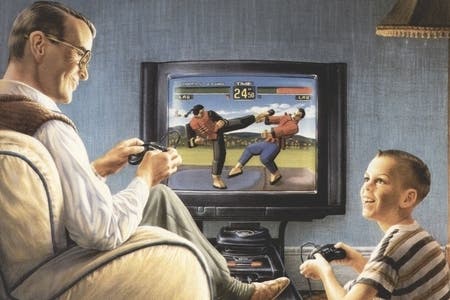Crippled by Nostalgia: The Fraud of Retro Gaming
Does gameplay drive our love of vintage games, or is it something else entirely?
I've been suffering from a gaming-related malady for quite a few years now, and have only recently been brave enough to admit that I have a problem. Although I'm employed to report on and critique modern releases across a wide range of current-generation formats, I find myself constantly drawn to the past.
I garner more enjoyment from securing a mint Japanese Mega Drive game than I do when the latest cutting edge all-singing, all-dancing Xbox 360 game drops onto the doormat. However, this longing for games I've loved and lost is curiously unfulfilling; no matter how much cash I throw at my obsession and how many dusty cartridges I acquire, it never seems to scratch the itch. I don't think I'm alone in my condition, either.
The business of buying and selling retro games is massive - and it's growing. Each year, as working examples of vintage hardware and software slowly but surely dwindle and dedicated collectors snap up the choicest titles for their own personal hoard, prices for the most desirable items steadily increase. Millions of pounds are spent each year on 'obsolete' gaming items; you only need look at auction sites and specialist online retailers to see just how popular retro gaming is at present. But what is driving this craze? Is it truly the appeal of good, old-fashioned gameplay, or is something else to blame?
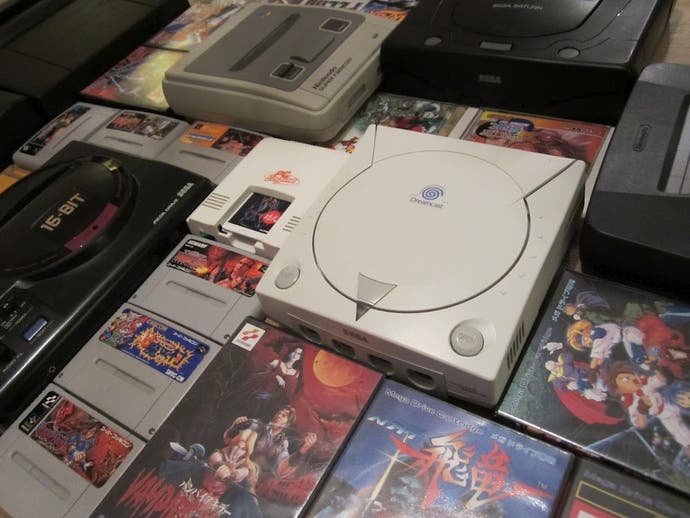
I've been a card-carrying member of the retro gaming movement since the mid-'90s, when I gleefully discovered that all my favourite 16-bit titles could be obtained cheaply at local independent stores keen to offload old stock and free up valuable shelf space for the legion of shiny new consoles about to hit the market.
With the passage of time my adoration for 'classic' software and hardware has swallowed up more of my income than I dare think about; I've sought out pretty much every major format over the past decade or so, and each year fresh collecting obsessions break the surface. However, the end result is always the same: items are bought online, excitement levels rise prior to delivery and then when the big day comes, the products in question are lovingly cradled for a few minutes before being consigned to the shelf with a sense of grim inevitability, where they will remain until I feel like staring at them for a few minutes or sell them to fund some other ridiculous retro-themed venture.
Actually using them for that they were created for - interactive entertainment - is something that rarely occurs.
I've been thinking a lot about this worrying affliction for the past year or so, as my list of highly anticipated but rarely played purchases has grown and grown. Why do I get so animated about games which are two or even three decades old, yet find that my excitement levels are noticeably lower when the latest graphically stunning next-gen title is announced and paraded all over the internet? What compels me to spend so much money on acquiring things that I'm never realistically going to play?
The answer, it would seem, is simple. The drug which fuels my maddening desire to own a complete collection of every Neo Geo Pocket title released in the UK is nothing less than pure, undistilled nostalgia. "Nostalgia is a sentimental longing for the past," explains Clay Routledge, assistant professor in the Department of Psychology at North Dakota State University. A keen gamer himself, Routledge is perfectly placed to understand my worrying need to use my gaming past as some kind of glorified comfort blanket.
"When people are nostalgic, they are reflecting on personally significant or momentous past experiences. These memories also tend to be largely positive, though a tinge of sadness is often present; nostalgia is often a little bittersweet. Critically, nostalgia is a functional human emotion as research demonstrates that engaging in nostalgic reflection increases positive mood, self-esteem, feelings of belongingness, and a sense of existential meaning."
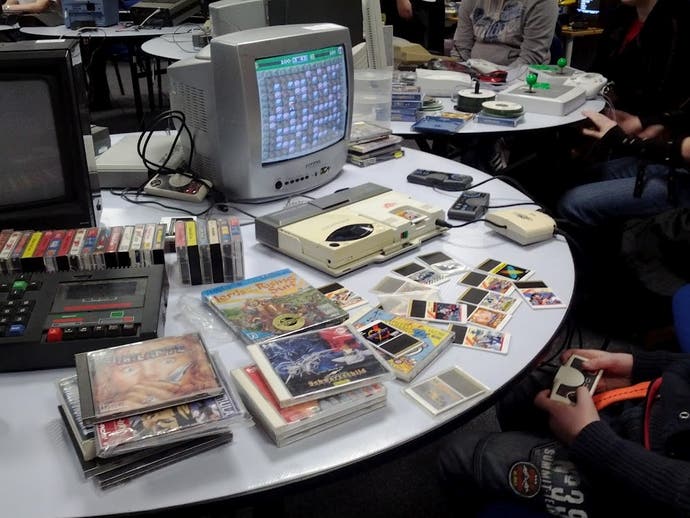
Routledge has conducted extensive research in the area of video game nostalgia, and believes that the impetus behind collecting old software is very much the same as that which encourages people to buy vintage albums, or endlessly watch classic movies: the need to reconnect with the past and recall former happiness.
"I think retro gaming actually has little to do with the specific games one is nostalgic for," he explains. "Instead, I believe that the games serve as a cue or a reminder of experiences we had in our youth that were truly fulfilling for us. For example, I have very fond memories of playing The Legend of Zelda and Super Mario Brothers on the NES. These are legitimately good and important games in the history of gaming, but I think what makes them so special for me personally is the broader context of playing these games.
"I would spend hours with my brother and close friends striving to complete them. It was an exciting time for all of us as we had never seen anything like this before and we had the freedom to just sit there together and take these games on. Now, when I play the same games they are not likely to fashion the same experience. However, it is that desire to recapture the experience that pushes me to play them; as retro gamers, we are chasing these memories."
"I think retro gaming actually has little to do with the specific games one is nostalgic for."
Clay Routledge
While it makes sense to compare the experience of completing Super Mario Bros. with listening to Blur's Parklife for the first time, Routledge believes that video game nostalgia is actually even stronger than the affection one has for music, film and other elements of popular culture, largely because of the direct connection one has with the game during play.
"I believe there is good reason to suspect that gaming-related nostalgia is made all the more potent because the experience of gaming is so immersive," he says.
Another explanation for the desire to experience beloved games is a change in lifestyle, which encourages us to reminisce about periods in our lives when we were footloose and fancy-free. For many 30-something players that invariably means our teenage years, when the lack of a full time job, concerned spouse and attention-seeking offspring meant that we could plough an inordinate amount of time into finding all of Super Mario World's 96 exits. As we grow older and our various commitments increase, the freedom to engage in debauched all-night gaming sessions diminishes - hence the fond memories of those happy times.
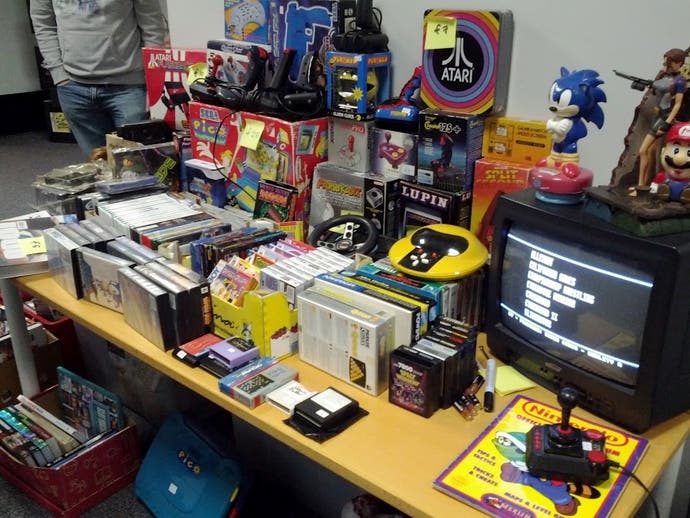
"Research on nostalgia from marketing and consumer psychology does suggest that we are particularly nostalgic about products from our youth," says Routledge. "The sense of freedom we had when young may create many experiences that we will one day be nostalgic about: having the freedom to spend a significant amount of time with friends or pursuing a hobby."
It's also significant that at the time of our lives when we have the most capacity to partake in gaming, we're also developing as adults and consequently discovering a whole host of new and exciting experiences: music, sport, relationships, and so on.
"It is in our youth and early adulthood that our sense of identity and self is really emerging as we are developing social networks, establishing personal interests and goals, and beginning to access life experiences that are considered to be highly valued from a cultural viewpoint," explains Routledge. "Games, and other nostalgic products - such as toys and records - may serve as cues that bring to mind the memories of experiences that were truly meaningful to us. So it may not be about the game per se, but instead what the game does. It serves as a reminder of consequential life experiences." Naturally, not everyone is as jaded as myself when it comes to vintage gaming. A great many people extract genuine enjoyment from replaying past classics, or rediscovering games they never even knew existed.
"I think chasing these memories is healthy because although we can never truly recreate that experience, it does make us feel good to engage in that nostalgic journey," says Routledge. "That is why we keep doing it. We like getting that little taste of the past."
Some of the more dedicated collectors are in agreement, such as Jake Smith. Director of a successful creative digital agency by day, he indulges in his love for retro gaming by night.
"Trying to recapture the feelings of being young and playing video games will certainly gloss over the reality that a lot of these games are nothing special," he admits. "There are so many good memories attached to that period of your life, when things were a lot simpler, that it's no wonder we find comfort in the pursuit. It can be a little bit of a disappointment to hunt down a game you loved dearly, only to find that age has not treated it well. I can honestly say that in my collection, about 15-20 per cent of the games I own across all formats is - hand on heart - because of the gameplay. The other, larger percentage is solely for the collecting."
But for Smith, his frighteningly expansive selection of retro gaming memorabilia still provides a vital release from the stress of the working day, and a much-needed escape from the occasionally overbearing exuberance of current-gen software. "While I do like a lot of modern games, I find them exhausting," he reveals. "They're an all-out visual and aural assault, which at times is just what I want. However, I find playing older 8 and 16-bit games allows my brain to process the working day, solve some programming or design problems and just let the brain wander while I enjoy the simpler pleasures of a shmup or platformer."
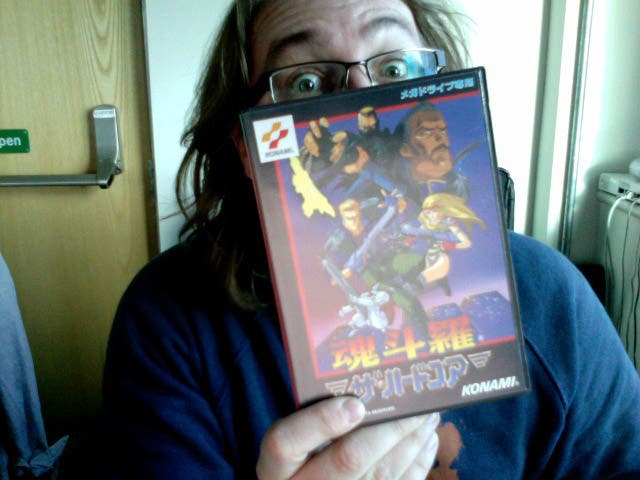
Smith is also slightly less sure about my controversial stance that retro gaming is entirely fraudulent: "I do truly enjoy playing games like Strider again; the emotional run down the mountain side on level two is still thrilling even by today's standards. So the content of these games definitely remains important; it's perfectly possible to gain legitimate entertainment from playing software you recall from your youth."
Smith also detects a movement towards giving interactive entertainment some kind of historical context, and feels that this could go some way to explaining why retro gaming has become so popular. Just as people will devote their lives to analyzing all of Hitchcock's films or charting the family tree of their favourite rock band, gamers are turning to retro collecting to give themselves a wider perspective on their hobby.
"I think as we get older and get into things like collecting, we also become fascinated by the other factors that made the games what they are," he explains. "The team that left Konami to create Gunstar Heroes; Super Shinobi with its bizarre Batman and Spider-man bosses that eventually got changed; the super-rare Mega Drive version of Tetris by Sega which was pulled before it even made it onto store shelves. The mystery and legends that surround some older titles become as intoxicating as actually hunting them down, and they're often a lot more interesting than the actual game itself."
"I do fear that the next gen of consoles could be a death knell for the physical game format, and that will be a very sad thing in years to come."
Jake Smith
Regardless of your opinion on this topic, it would appear that while collectors will always collect, the clock is ticking for traditional retro market as we know it. As the industry transitions inexorably from an era of physical media to purely digital distribution, there's a real danger that this particular niche of video gaming - with all its peculiarities and oddball characters - could vanish altogether.
The external trappings of vintage gaming items - boxart, packaging, spine cards and so on - contribute immensely to the overall allure for collectors. One only needs to look at the vast difference in the second hand value of boxed and unboxed games to see that. With digital gaming, these elements will be lost - along with a large proportion of the appeal.
"Maybe it is important to have a tangible nostalgia cue?" muses Routledge when I put this point to him. "For example, people who are nostalgic about their days as a great athlete may gain something by keeping a bunch of sports memorabilia around, and people certainly like to hang photos around their house that remind them of important life experiences.
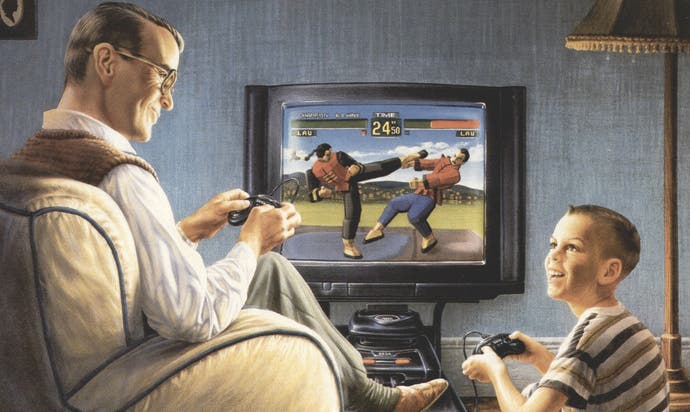
"In terms of gaming, how would this work if all of your old games were simply stored on a hard drive or existed only in some form of cloud storage? I believe the majority of hardcore gamers do not like the idea of getting rid of physical games and adopting a download only model. This could be for a number of reasons, but one of those could be this sense of nostalgia and our desire to have physical reminders of the games that we love."
Smith is equally fearful of the effect of digital media on the pastime of retro collecting. "I can vividly remember trips on the train with a group of friends to a game store in Preston which dealt in 16-bit imports, armed with a load of games to trade in. There was the hunt for obscure titles followed by the inevitable bartering and then the trip home, full of expectancy as we gleaned every bit of information we could from the Japanese manuals and box screenshots.
"The nostalgia resonates strongly for me. The immediacy of the internet and transiency of digital downloads has really killed a lot of this side of gaming. I do fear that the next gen of consoles could be a death knell for the physical game format, and that will be a very sad thing in years to come."
Despite finally getting to the stage where I'm able to acknowledge that I have a problem, I too feel an intense degree of sadness when I think that my children - who are already growing up in an era where games are treated as throwaway entertainment, cost less than the price of a Mars bar and can be downloaded instantly to your mobile phone - won't experience the same things that I did when I was growing up.
Pouring over tiny, stamp-sized screenshots in the latest issue of my favourite monthly magazine; saving up pocket money for weeks on end to fund a purchase; trawling the shelves of my local indie store in search of that undiscovered import gem. These are all things that I treasure as a gamer and will do until the day I shuffle off this mortal coil, yet the opportunity - and need - for modern players to experience these elements of our hobby are gradually dying out.
But then again, when I tot up the amount of cash I've wasted on chasing those very same nostalgic memories, perhaps my kids will be infinitely better off having not lived through what I did.
